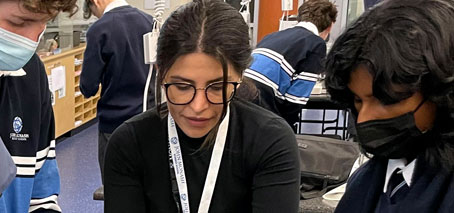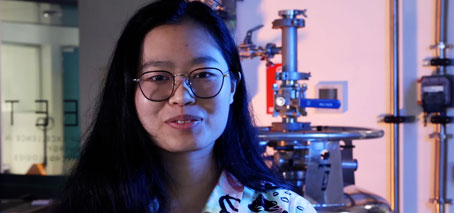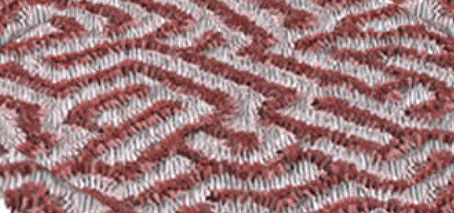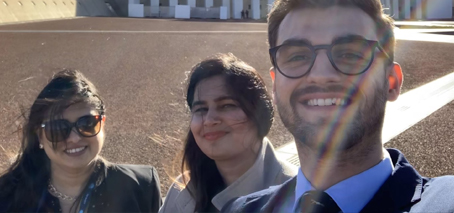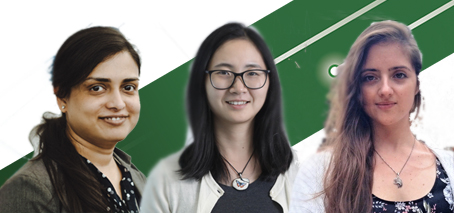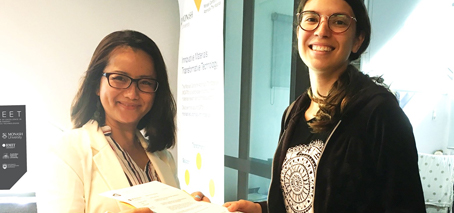Nobel-winning material science in the classroom Gol Akhgar and Julie Karel (Monash) this month demonstrated graphene exfoliation with scotch-tape in the class, explaining the role of 2D materials in future beyond-CMOS electronics. The lesson is part of FLEET’s ongoing year-10 future electronics unit at John Monash Science School, which builds up from atomic/quantum fundamentals to transistor functions, logic circuits and …
International Women’s Day bias breaker: Meera Parish
International Women’s Day bias breaker: Golrokh Akhgar
International Women’s Day bias breaker: Peggy Schoenherr
International Women’s Day bias breaker: Patjaree Aukarasereenont
International Women’s Day bias breaker: Maedehsadat Mousavi
International Women’s Day: FLEET women blazing their own trail
Women in FLEET Honours students at RMIT, UNSW, ANU
Please welcome FLEET’s three new Women in FLEET Honours students: Kyla Rutherford (RMIT) Olivia Kong (UNSW) Robin Hu (ANU) Kyla, Olivia and Robin have all received Women in FLEET Honours Scholarships, which are awarded to high performing students doing their Honours research project with FLEET. Kyla Rutherford will be working with Jared Cole at RMIT to understand transport properties in …
Seeking answers in ferroelectric patterning
Why do some ferroelectric materials display bubble-shaped patterning, while others display complex, labyrinthine patterns? A FLEET study finds the answer to the changing patterns in ferroelectric films lies in non-equilibrium dynamics, with topological defects driving subsequent evolution. Ferroelectric materials can be considered an electrical analogy to ferromagnetic materials, with their permanent electric polarisation resembling the north and south poles of …
Three of FLEET’s future science leaders engaging with policy-makers
FLEET had a team of three researchers at Science meets Parliament (SMP) in November, talking to parliamentarians and other scientists from around the country, and perfecting the art of pitching to politicians. FLEET’s gun team were: Hareem Khan (RMIT), Oliver Stockdale (UQ) and Semonti Bhattacharyya (Monash). Science Meets Parliament is an annual meeting of Australia’s policy-makers with leading and emerging …
Developing future scientific leaders
FLEET tops up external funding to build leadership skills Two of FLEET’s six strategic priorities are developing the next generation of science leaders, and fostering equity and diversity in STEM. Establishing career support initiatives for women in FLEET is an important milestone towards achieving each of these goals. FLEET will provide an environment for our early-career women to thrive and …
Women in FLEET Fellowships
FLEET’s goal is to achieve 30% representation of women at all levels across FLEET. To begin to move towards this goal, we needed innovative approaches that would allow us to begin ‘shifting the dial’. One innovative initiative that has met with success was FLEET’s new women-only Fellowships, offered in multiple locations, and across all fields of study in the Centre. …
Three new research fellows join FLEET
FLEET welcomes three new research fellows, who will be working in diverse roles across the Centre: Dr Semonti Bhattacharyya (Monash) Dr Peggy Qi Zhang (UNSW) Dr Iolanda Di Bernardo (Monash) The three new positions have been filled via the Women in FLEET fellowship, which forms part of FLEET’s mission to create workplace diversity and retain female scientists within STEM. Dr …
First Women in FLEET scholarship recipient
“I love working in FLEET because it challenges me all the time, and because it has deepened my understanding in an essential topic to the progress of technology. I thought I would never be capable to work in an environment full of such brilliant minds.” Jessica Alves at Monash University Engineering is the recipient of FLEET’s first Women in FLEET …

